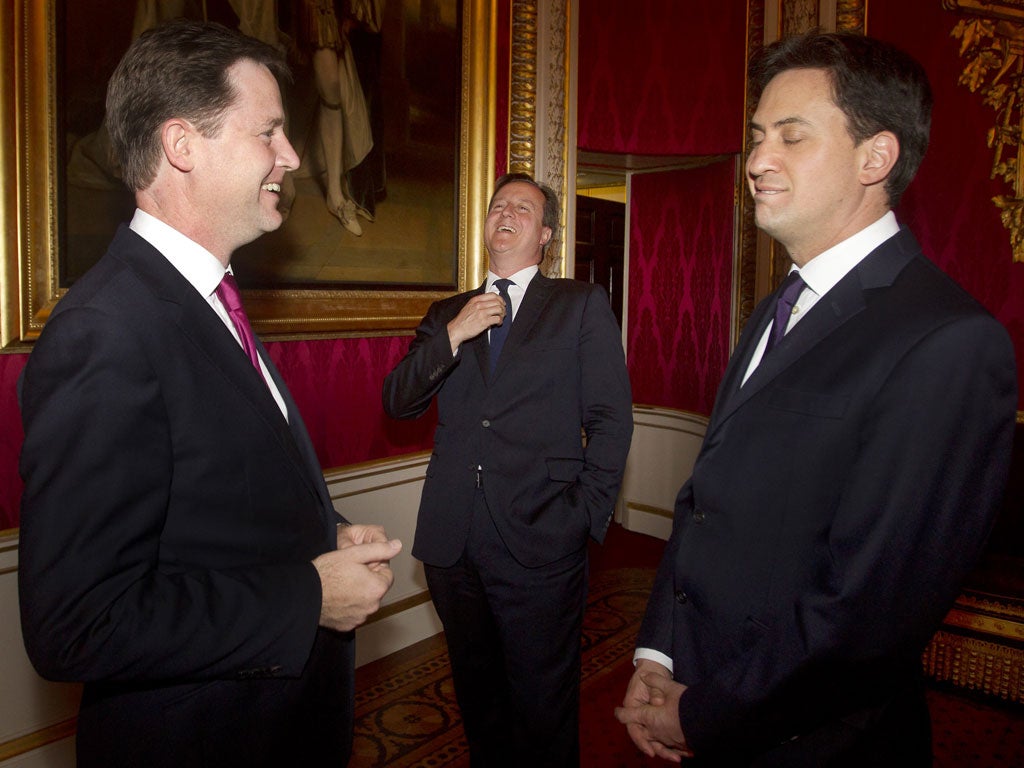The Independent's journalism is supported by our readers. When you purchase through links on our site, we may earn commission.
Mark Dampier: Interest rates to stay low until election
The Analyst

Your support helps us to tell the story
From reproductive rights to climate change to Big Tech, The Independent is on the ground when the story is developing. Whether it's investigating the financials of Elon Musk's pro-Trump PAC or producing our latest documentary, 'The A Word', which shines a light on the American women fighting for reproductive rights, we know how important it is to parse out the facts from the messaging.
At such a critical moment in US history, we need reporters on the ground. Your donation allows us to keep sending journalists to speak to both sides of the story.
The Independent is trusted by Americans across the entire political spectrum. And unlike many other quality news outlets, we choose not to lock Americans out of our reporting and analysis with paywalls. We believe quality journalism should be available to everyone, paid for by those who can afford it.
Your support makes all the difference.It all started so well. The first five months of 2013 saw most major stock markets embark on a strong run. This came to an end on 21-22 May, when the S&P 500 and FTSE 100 closed at peaks of 1,669 and 6,840 respectively.
Since then stock markets globally have fallen, with the UK market down 8.2 per cent, the US market off by 3.7 per cent, and Asia 9.8 per cent lower in sterling terms.
The main reason for the fall was the suggestion by Ben Bernanke, chairman of the US Federal Reserve, that the US could begin reducing its quantitative easing (QE) programme if the economy continues to improve.
Bonds followed stocks lower, with the yield on both UK and US 10-year government bonds rising to around 2.5 per cent from a low of about 1.6 per cent earlier this year.
Judging from some of the scare stories in the newspapers, investors could be forgiven for thinking that UK government bonds (gilts) were the worst-performing asset class during June. Funds in the IMA UK Gilt Sector did lose money during the month, 3.06 per cent on average, but no bond funds appeared near the bottom of the performance tables (this was once again reserved for commodity and resources funds).
It wasn't all plain sailing, though. In the US, 30-year Treasury Inflation Protected Securities (Tips – the US government's index-linked bonds) lost over 20 per cent.
This was a timely reminder that longer-dated bonds can be as volatile as stocks.
Financial markets have since bounced back a little, but it should be remembered that a correction was probably needed after such a strong run.
It should also be noted that the US Federal Reserve indicated it might start tapering its QE programme, but this is a far cry from actually reversing it and tightening monetary policy. This is not 1994 when, in February of that year, the Federal Reserve unexpectedly increased short-term interest rates.
I maintain it is hard to see interest rates rising in the US before the end of 2014 and before the next general election in the UK.
Until then interest rates are likely to remain around the “emergency” level of 0.5 per cent, and for those that believe interest rates should normalise, it is worth considering what this would mean.
A “normal” interest rate is usually based on the strength of the economy and the level of inflation.
With inflation around 2.7 per cent in the UK, a more “normal” base rate might be 5 per cent. However, with the sheer amount of debt still in the economy, any move in interest rates, never mind to 5 per cent, would soon snuff out any UK economic recovery.
The situation in the US is slightly different. They are further ahead in their recovery, mainly because they have fixed the banks.
The US doesn't actually need to do any more QE. Money supply is returning to normal, so if anything ongoing QE could have an inflationary impact.
James Ferguson of Macro Strategy Partnership argues that a continuation of QE is actually bad for bonds for exactly this reason.
Contrary to expectations, therefore, QE ending in the US could be positive for bonds as inflationary expectations would reduce. An end to QE should also be welcome as it suggests the economy is returning to a more normalised state.
With the US ahead in terms of its economic recovery, the ending of QE is likely to come about sooner rather than later.
In the UK, with British banks still unlikely to increase lending anytime soon, we might not have seen the last of QE just yet.
This suggests to me that the bond story is not entirely dead, but it is nearer its end.
In my view investors should continue to look towards more strategic and higher yielding bond funds for their fixed-income exposure.
I also think the recent fall in equity markets has given those who missed out on the previous rally an excellent chance to buy the dip as I think stock markets will head higher over the medium term.
Mark Dampier is head of research at Hargreaves Lansdown, the asset manager, financial advisor and stockbroker. For more details about the funds included in this column, visit www.hl.co.uk/independent
Join our commenting forum
Join thought-provoking conversations, follow other Independent readers and see their replies
Comments